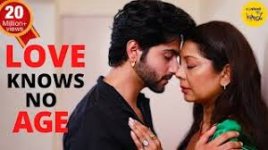In the glitzy world of Bollywood, age is more than just a number—it's a double standard. When seasoned male actors like Amitabh Bachchan or Shah Rukh Khan are paired with actresses decades younger, it's celebrated as timeless romance. However, when the roles reverse, and older actresses are cast opposite younger male leads, the narrative shifts to criticism and mockery.
Take the recent Netflix series The Royals, featuring Bhumi Pednekar and Ishaan Khatter. The show has been under scrutiny, not just for its storytelling but for the perceived lack of chemistry between the leads. Critics have pointed out that the romantic pairing feels forced, with some attributing this to the age difference between the actors. Bhumi's performance, in particular, has been a focal point, with discussions veering into personal territory, including unwarranted comments about her appearance.
This isn't an isolated incident. Historically, Bollywood has been more forgiving, even appreciative, of older male actors romancing younger actresses. Films like Nishabd and Cheeni Kum showcased such dynamics without facing the brunt of societal critique. In contrast, when older actresses take on similar roles, they're often met with skepticism and, at times, ridicule.
The underlying issue isn't just about age but about deeply ingrained societal perceptions. There's an implicit belief that men age gracefully, gaining charisma and depth, while women are expected to maintain a youthful allure to remain relevant. This bias not only affects casting decisions but also influences audience reception and critique.
Bhumi Pednekar's experience with The Royals serves as a case study of this phenomenon. While the series had its flaws, the disproportionate focus on her appearance and the age dynamics overshadows a broader conversation about storytelling and character development. It's essential to question why such pairings are acceptable in one context and controversial in another.
Take the recent Netflix series The Royals, featuring Bhumi Pednekar and Ishaan Khatter. The show has been under scrutiny, not just for its storytelling but for the perceived lack of chemistry between the leads. Critics have pointed out that the romantic pairing feels forced, with some attributing this to the age difference between the actors. Bhumi's performance, in particular, has been a focal point, with discussions veering into personal territory, including unwarranted comments about her appearance.
This isn't an isolated incident. Historically, Bollywood has been more forgiving, even appreciative, of older male actors romancing younger actresses. Films like Nishabd and Cheeni Kum showcased such dynamics without facing the brunt of societal critique. In contrast, when older actresses take on similar roles, they're often met with skepticism and, at times, ridicule.
The underlying issue isn't just about age but about deeply ingrained societal perceptions. There's an implicit belief that men age gracefully, gaining charisma and depth, while women are expected to maintain a youthful allure to remain relevant. This bias not only affects casting decisions but also influences audience reception and critique.
Bhumi Pednekar's experience with The Royals serves as a case study of this phenomenon. While the series had its flaws, the disproportionate focus on her appearance and the age dynamics overshadows a broader conversation about storytelling and character development. It's essential to question why such pairings are acceptable in one context and controversial in another.

